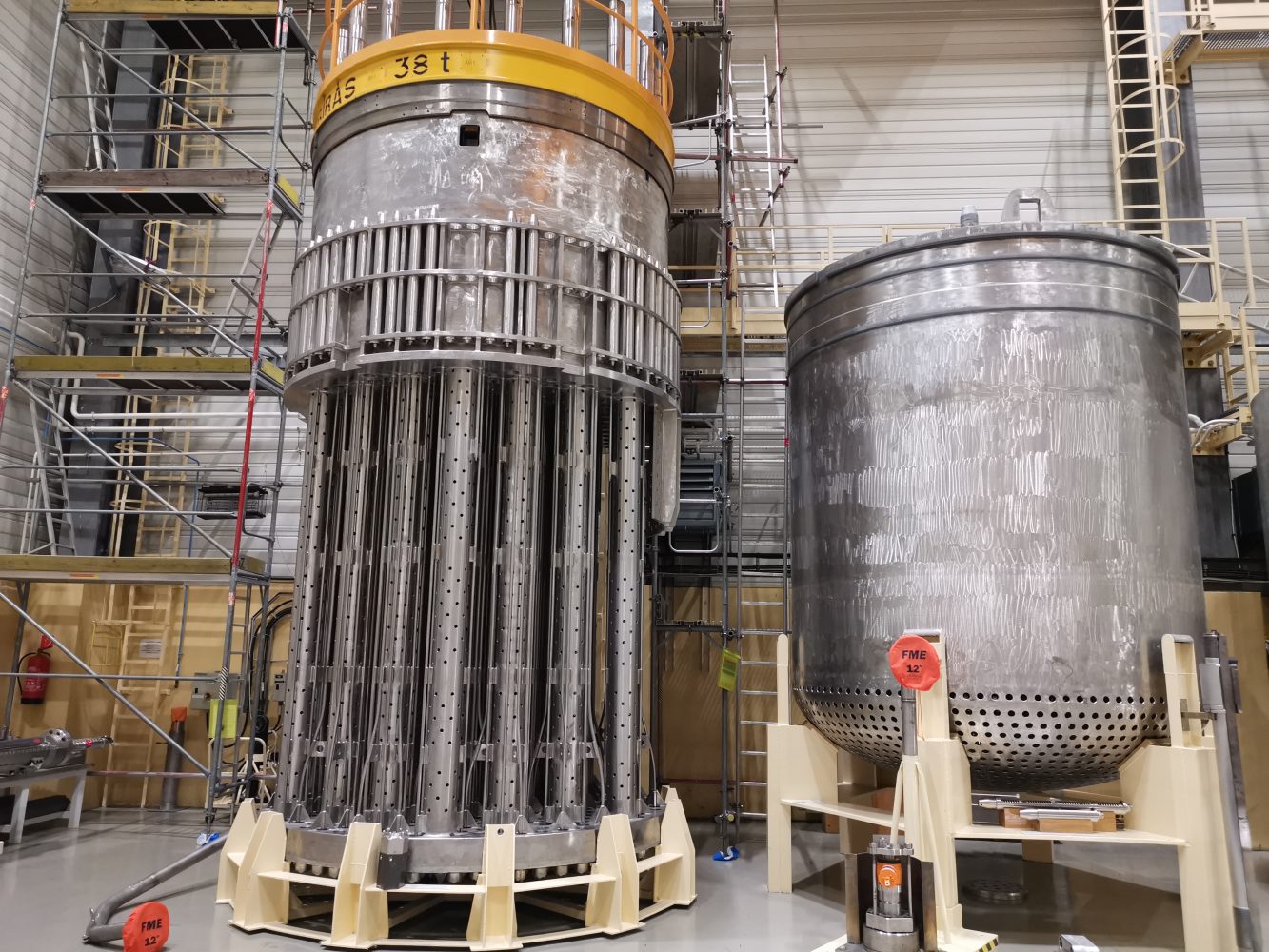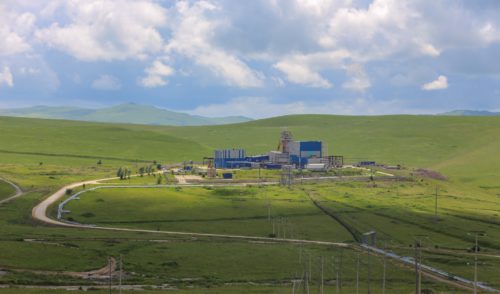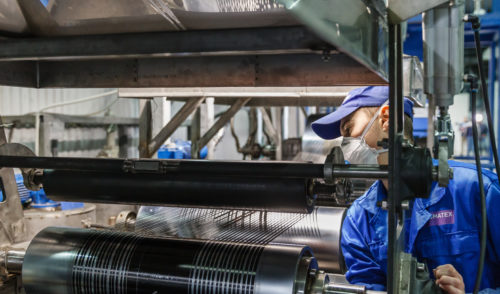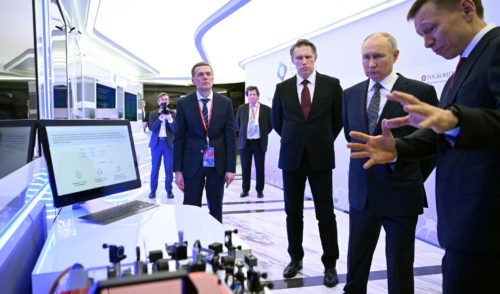
Sorting Out Priorities
back to contentsMore than 300 top-rank officials, executives, environmentalists and scientists, who discussed safe uses of nuclear energy, innovative technologies, prospects of their application, and present-day standards of public acceptance, attended the forum.
At the session on new technologies, speakers told the audience about the latest developments in the nuclear power industry of Russia and Hungary. For instance, Rosatom continues developing new fuel for nuclear reactors, improving VVER reactor technology and developing fast reactors (Russia is now the only country operating commercial fast neutron reactors – RN). Work is continuing on the Breakthrough Project that aims at ‘closing’ the nuclear fuel cycle, i.e. making nuclear fuel fully recyclable. The floating nuclear power plant (FNPP) intended to supply power to Russia’s northernmost city of Pevek was another point of interest.
 Another lively session was devoted to nuclear decommissioning and safe management of nuclear waste and spent nuclear fuel. These matters are very important for Rosatom: by 2040, there will be 25 shutdown nuclear reactors in Russia. As many as 21 more will be in the process of decommissioning. “The basic strategy we have defined provides for immediate dismantling of all reactors. This approach reduces total costs and removes the burden of responsibility from future generations. Robotic automation also makes a great contribution to the overall cost reduction,” Natalia Safonova from the Decommissioning Management Division of Rosenergoatom (Rosatom’s subsidiary) explained. She added that the costs of a pilot segmenting project at the Novovoronezh Nuclear Power Plant were reduced 2.5-fold, while the radiation dose absorbed by the staff decreased more than 10-fold.
Another lively session was devoted to nuclear decommissioning and safe management of nuclear waste and spent nuclear fuel. These matters are very important for Rosatom: by 2040, there will be 25 shutdown nuclear reactors in Russia. As many as 21 more will be in the process of decommissioning. “The basic strategy we have defined provides for immediate dismantling of all reactors. This approach reduces total costs and removes the burden of responsibility from future generations. Robotic automation also makes a great contribution to the overall cost reduction,” Natalia Safonova from the Decommissioning Management Division of Rosenergoatom (Rosatom’s subsidiary) explained. She added that the costs of a pilot segmenting project at the Novovoronezh Nuclear Power Plant were reduced 2.5-fold, while the radiation dose absorbed by the staff decreased more than 10-fold.
Since Paks NPP Unit 1 is envisaged to be shut down in 2032–2037, Hungary is already considering a decommissioning strategy. According to the Hungarian officials, dismantling will begin after the so-called protection period is over. Postponed dismantling is seen as the primary option, but immediate dismantling is also being considered.
Participants of the session were united in the opinion that spent nuclear fuel is a valuable product that can be reprocessed and used in the nuclear and other industries. “Spent nuclear fuel is a real treasure as its two thirds are elements that are in demand from high-tech industries,” Albert Vasiliev, Chief Researcher at Dollezhal Research and Development Institute of Power Engineering (Rosatom’s subsidiary) and Director of the International Environmental Safety Center said.
The session devoted to public acceptance of nuclear power brought together those, who wanted to discuss stakeholder communication technologies and information disclosure requirements forming a new environmental transparency standard that will become obligatory for every nuclear organization. Today, the primary goal of a communications policy is to create a single information space enabling everyone to obtain accurate information about activities of nuclear companies and organizations. “The principles of reliability, accuracy, transparency and accessibility of information have largely improved public confidence in nuclear power,” the Memorandum summarizing the discussions held at the Forum read.
Public acceptance, maximum safety and ongoing development of nuclear technology are the three pillars of the nuclear power industry. This was repeatedly stressed by both Russian and Hungarian speakers. These principles let nuclear energy play a key role in meeting the greatest challenges of today, such as environmental pollution, global climate change and depletion of natural resources.
“The annual average emissions of carbon dioxide in our country is 6.6 tons per capita, which is below the EU requirement of 8 tons per person. It is the nuclear power plant that helps us achieving environmental goals. Nuclear energy has a positive effect on the nation’s competitiveness and well being,” Andrea Beatrix Kadar, Deputy State Secretary for Energy Affairs at the Ministry of National Development of Hungary, said in her speech.
Both Hungarian and Russian top-rank officials were repeatedly praising many years of fruitful cooperation in the field of nuclear energy between the two countries.
Before the Forum, Rosatom’s Director General Alexey Likhachev had a meeting with János Süli, a minister without portfolio responsible for the Paks II project. According to Alexey Likhachev, field-proven innovative solutions used at Novovoronezh II and appreciated by the international experts will also be used at Paks II. For the time being, Rosatom has obtained 400 licenses from Hungarian regulatory authorities, including an environmental license and a site license. Likhachev said that the Russian state nuclear corporation plans to provide Hungary with a set of documents to be submitted for a license already in the summer of 2020. “With this in mind, we expect the license to be obtained in the second half of 2021,” Alexey Likhachev stressed.
 “We employ international experts to make new Paks II units the most advanced and reliable in the world. All engineers and consultants involved confirm that the units meet all the requirements of Hungary and the European Union,” János Süli said.
“We employ international experts to make new Paks II units the most advanced and reliable in the world. All engineers and consultants involved confirm that the units meet all the requirements of Hungary and the European Union,” János Süli said.
Many years of partnership
Hungary’s only nuclear power plant Paks produces nearly 40% of electricity consumed in the country. It is Russian-designed and was built in the late 1980s. Nuclear fuel for the Paks NPP is supplied by TVEL (a Rosatom Group company). According to the current contract, TVEL will be shipping fuel for all the four reactors of Paks NPP until the end of their service life.
Last year, Paks nuclear power plant won the Quality Innovation Award, which is held under the auspices of the European organization for quality (EOQ), in the Business Innovations (Large Companies) category with its project of extending the fuel cycle from 12 to 15 months.
In order to switch four VVER-440 reactors to a 15-month fuel cycle, Paks hired TVEL to upgrade nuclear fuel, have it licensed and improve the fuel cycle. The extended nuclear fuel cycle increased utilization of the plant’s power capacity while meeting all safety requirements.
In November 2017, TVEL and MVM Paks NPP Ltd. signed a contract to develop and introduce a modified version of Generation II fuel assemblies with a higher uranium density and an optimized water uranium ratio. The use of the modified assemblies will make Paks more cost efficient even if the fuel cycle remains unchanged.
In late 2014, Russia and Hungary signed a package of agreements to build new reactor units Paks 5 and Paks 6 with VVER-1200 reactors. New build will double electricity production.




